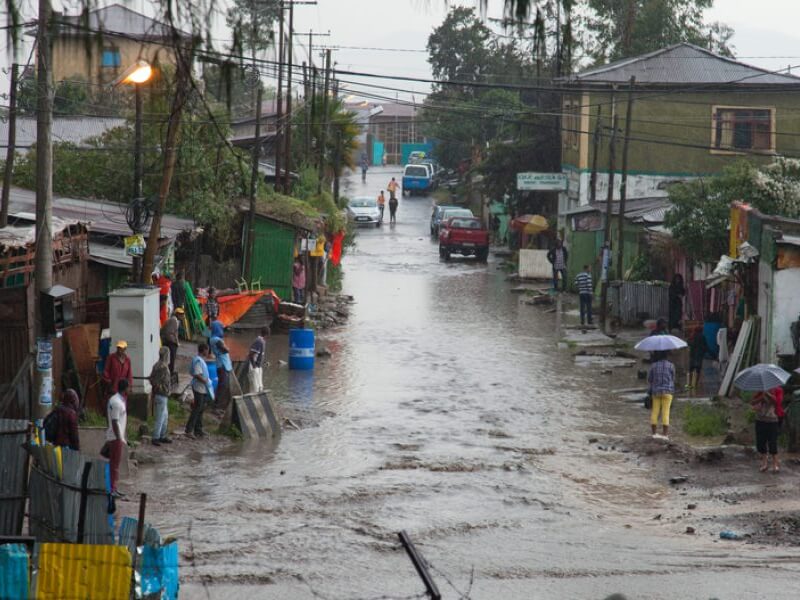16 August 2022 –
As the planet continues to cook, so grows the need for effective climate mitigation and adaptation strategies. Such strategies are starting to unfold, but their impacts need to be examined carefully. While they are essential for saving life on planet earth, it is crucial to ensure that they do not adversely affect vulnerable groups from poor nations.
The demand for many of the products that might help to decarbonize the planet—for example solar panels, wind turbines and hybrid cars—is rising. But many of these final products require critical minerals as raw materials, which come primarily from poor nations. Mineral extraction in Latin American, Asian, and African economies has adversely impacted the local flora and fauna and resulted in displacement of tribal and indigenous communities. Disputes over land claims and water management in these areas have often manifested in forms of conflicts between indigenous communities and mining corporations.
Similarly, while waste recycling is good for the environment, cross country differences in waste generation and management have impacted the trade in waste among nations. This has led advanced economies like US, UK, Germany, and Japan to export and dump significant portion of their wastes to less developed countries, disregarding its potential hazards for these nations.
While rich nations have been primarily responsible for the climate crisis, the burden has fallen disproportionately more on the poorer nations who are not only vulnerable but are also financially constrained. A recent report shows that rich nations’ pledge to provide climate finance to poorer nations have fallen short of its stated goals, which had been meagre to begin with. The paucity of climate finance and gaps between its targets and actual provision continues simultaneously with rich nations heavily subsidizing the fossil fuel industries.
Considering these disparities between rich and poor nations, it is crucial to evaluate current climate alleviation policies. What are the impacts and obstacles of mitigation strategies and what can be done to bridge the gaps between rich and poor nations? In a recent report to the Club of Rome, we provide evidence of some of these challenges to climate mitigation strategies and suggests policies to overcome them.
Consider mining, for example. It is possible to reduce conflicts between mining corporations and indigenous communities through formal and binding contracts that are then subject to regular monitoring and independent audit. State policies can appropriate some of the profits of corporations through royalties, progressive corporate profit taxes, etc. and channel the generated revenue towards the development of indigenous communities. Public funding must be directed more towards research and development of cost-effective and sustainable practices associated with mining of critical minerals. For private actors, there must be clear incentives for sustainable process of extraction and disincentives for over-exploitation and environmentally damaging practices. Public-private partnerships need to be more explicitly cognizant of the share-value principle. Creating horizontal institutions and direct involvement of accountable public authorities can help to ensure that the rights of the local communities are not compromised.
With regard to waste management, the experience of China’s ban on importing plastic wastes and subsequent amendments to the Basel convention in 2019 shows that regulations can work to bridge the gap in waste management between rich and poor economies. Regulatory changes and China’s ban impacted the pattern of global waste trade flows, resulting in more recycling within high income countries. International shipments of most plastic scrap and waste are now only allowed with the prior written consent of the importing country and any transit countries. While there has been a recent surge in illegal trade in plastics in some countries, transfer of recycling technology from rich to poor nations can help to curb illegal trading and improve their recycling capability.
The ongoing war between Russia and Ukraine and the associated energy crisis have posed new challenges, as many rich countries have started to renege on their climate finance goals. Progress towards a just green transition seems to be impeded as more advanced economies prolong their reliance on fossil fuels for short term goals of containing energy prices. Amidst this crisis, it is crucial to acknowledge the need for massive increase in climate finance, particularly for poorer nations. A combination of regulations preventing or curbing new private investment in fossil fuels, along with a major re-orientation of public subsidies from fossil fuels towards green renewable energy sources is necessary to ensure a sustainable future for all.






